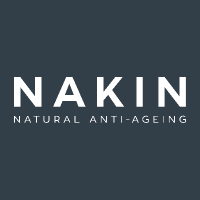What Is Epigenetics in Skincare?

The skincare world is forever changing, as science tries to get closer and closer to achieving perfect skin. So, it is no surprise that new scientific methods are evolving, and one of these is epigenetics. Epigenetics in skincare is about influencing the expression of certain genes responsible for good skin, that will then lead to a change in our cells functioning ability. Most of us already follow epigenetic routines without even knowing it, this is by using good skincare like ours and eating healthily.
Understanding the Role of Epigenetics in Skincare
"You are what you eat" - a popular phrase we often hear, but have you ever considered that it could also be applied to our skin? As much as we try to take care of our skin with topical products and treatments, ultimately, what we put into our bodies can also affect its health and appearance. This is where the concept of epigenetics comes into play.
What is Epigenetics?
Epigenetics refers to changes in gene expression that are not caused by alterations in our DNA sequence. It involves modifications to the structure of our our DNA, which can turn genes on or off without actually changing their genetic code. These modifications can be influenced by various external factors, including diet, lifestyle, and environmental exposures.
The Role of Epigenetics in Skincare
Our skin is our largest organ and serves as a protective barrier against the outside world. It is also highly responsive to external stimuli, making it particularly vulnerable to epigenetic changes. For example, exposure to UV radiation from the sun can lead to changes in gene expression, resulting in skin damage and premature ageing.
Furthermore, studies have shown that our diet and lifestyle can also impact the health of our skin through epigenetic mechanisms. For instance, a diet high in sugar and processed foods has been linked to inflammation and oxidative stress, which can accelerate the ageing process.
On the other hand, consuming nutrient-rich foods and adopting a healthy lifestyle can promote positive epigenetic changes, leading to healthier and more youthful-looking skin.
Applying Epigenetics in Skincare
So, how can we use the knowledge of epigenetics to improve our skincare routine? Firstly, it's essential to focus on nourishing our bodies with a balanced diet that includes plenty of fresh fruits, vegetables, and healthy fats. These nutrient-dense foods provide our skin with the necessary vitamins, minerals, and antioxidants to maintain a healthy epigenetic profile.
Secondly, it's crucial to protect our skin from external aggressors like sun exposure and pollution. This can be achieved through the use of sunscreen and anti-ageing face products like Nakin’s.
Lastly, incorporating stress-reducing activities such as yoga, meditation, or regular exercise can also positively impact our skin's epigenetic profile. Chronic stress has been linked to premature ageing and skin conditions like acne, so finding ways to manage stress is crucial for maintaining healthy skin.
The Future of Epigenetics in Skincare
As our understanding of epigenetics continues to evolve, we can expect to see even more advancements in skincare. Researchers are currently exploring the potential of epigenetic therapies, such as using specific compounds to target and modify gene expression for skin conditions like psoriasis, eczema and anti-ageing.
Additionally, personalised skincare lifestyles based on our individual unique genetic makeup is also being studied. By analysing our DNA and identifying potential epigenetic factors, we may be able to create customised skincare programmes that target our specific needs.
Incorporating epigenetics into our skincare routine can lead to healthier and more radiant skin. By nourishing our bodies, protecting our skin from external stressors, and managing stress levels, we can optimise our epigenetic profile for optimal skin health. This is likely to become much more advanced in the future, as research learns more about this interesting method.


Leave a comment